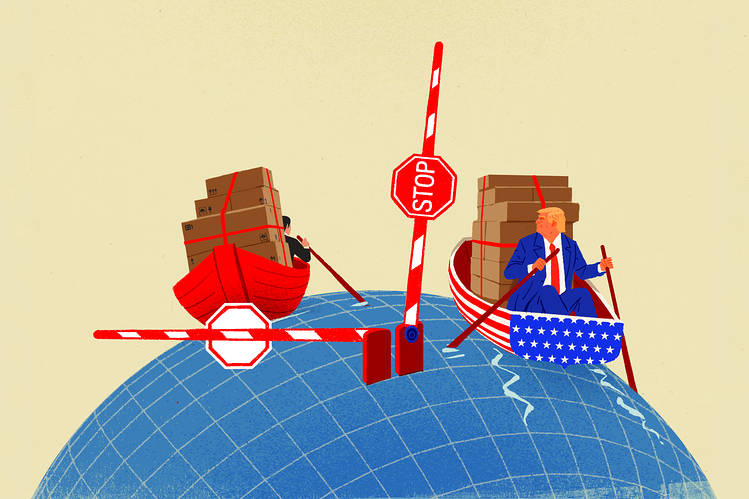Looming Economic CrisisL'EDITORiALE DI PIETRO PAGANINI E NILANJAN BANIK PER THE HITAVADA
- 2 July 2018
- Posted by: Competere
- Categories: highlights, News

Countries around the world are increasingly resorting to protectionist measures, something not good for future economic growth. In order to understand what factors lead to a crisis, we have to step a little back into history. Soon after the Second World War, when Europe was devastated, policymakers in the region wanted to re-build Europe on the premise of socialist capitalism. The underlying idea is that when the market is at a nascent stage, the state will ensure that a labour market comes into play and jobs become available. For the elderly, and those without jobs, the state will take care through a benevolent social security system — paying unemployment benefit and pensions.
The objective is noble, but to make the system efficient the government has to ensure that it collects funds through taxation to pay dole for the unemployed and pension for the retired. Dole and pension are expenditures for the government, and to pay for it, the government has to collect taxes.
The principal source of tax is corporate income tax (contributing to nearly 80 per cent of the total tax collection), indirect tax (such as excise and service tax) and direct income tax (that is, taxing the working class).
At the time of recession when businesses are not forthcoming, or when people find it hard to get a job, it is quite natural that tax collection will be inadequate. Therefore, the government will meet its welfare objective (that is, to pay for dole and pensions) by printing money or by borrowing. Both are perfect recipes for increasing the budget deficit and the public debt.
A higher budget deficit can be sustained, provided the economy is growing. With countries around the world, including those in Europe going for ultra-right jingoistic path, the probability of economics wining over politics is increasingly becoming less. This new wave of country first with total disregard to trade/economic specialisation may delay institutional reforms. In a socialist capitalist structure, wages are protected by trade unions. This is irrespective of labour productivity and firms’ ability to earn profit.
A natural suggestion would be to reform the labour and pension laws (dubbed as austerity measures), and slacken the immigration laws. But, if the recent poll results are any indication, it seems voters would rather punish the parties in favour of austerity measures.
READ THE FULL ARTICLE: The Hitavada – Looming Economic Crisis

